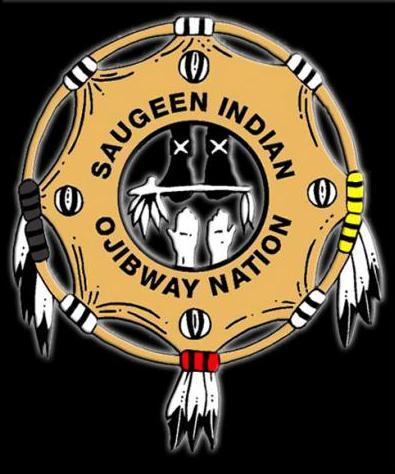Like this article? rabble is reader-supported journalism. Chip in to keep stories like these coming.
The Saugeen First Nation is in the process of making its decision about a nuclear waste repository on their territory near Lake Huron.
And along with their right to free, prior and informed consent, they have a clear promise from Ontario Power Generation and an election-time pledge from the federal government.
OPG spokesperson Neal Kelly says, “We will not build this facility without their support. We are on record with that; we’ve been very clear about that.” Saugeen Chief Vernon Roote affirms, “Ontario Power Generation had given us their commitment that they will not proceed unless they have community support. That’s a letter that we have on file.” And the Liberal platform this past election promised “a renewed, nation-to-nation relationship with Indigenous Peoples,” “the implementation of the United Nations Declaration on the Rights of Indigenous Peoples” and a “commitment to protect the Great Lakes.”
In Dec. 2015, Indian Country Today reported, “Saugeen leaders are determining how to gauge the community voice — by vote at public gatherings or perhaps at the polls — and whether they will favor the facility or not. They’ve held engagement sessions on the issue. …[Chief Roote says], ‘The community needs to be educated before they can understand. I can’t say what the community will provide for an answer.'”
To help in that process, we have sent copies of Maude Barlow’s reports Liquid Pipeline: Extreme energy’s threat to the Great Lakes and the St. Lawrence River and Our Great Lakes Commons — A people’s plan to protect the Great Lakes forever to the community. We have also offered to help in any other way we can.
The First Nation appears to be already very concerned about the nuclear waste site. In 2013, then Chief Randall Kahgee stated, “We have a long list of fears, legitimate fears in our community about these facilities, interaction with our rights, our interests and our way of life.” And current Chief Roote has expressed concern about water protection. He says, “It’s a natural reaction to say no to anything dangerous like nuclear waste, so there is a lot of negative. We live so close to the lake that there’s going to have be some studies done in regards to the water and the dangers to water.” He has also stated, “If something were to happen with the disposal or the leakage of nuclear waste I wouldn’t want to be drinking the water downstream.”
Indian Country Today also notes:
“[Chief] Roote said the Saugeen Nation might do its own studies and that other First Nations should be consulted. The Mohawk Council of Kahnawà:ke, for example, has come out against the proposed DGR and in a May press release supported a Saugeen fight against the proposal. Mohawk Council of Kahnawà:ke environment portfolio Chief Clinton Phillips has stated, “While the Bruce Power plant is hundreds of kilometres from Kahnawà:ke, any potential nuclear contamination problem could nonetheless affect not only us but also the 40 million-plus people who use the Great Lakes/St. Lawrence River for drinking water.”
In May 2015, Anishinabek Nation Grand Council Chief Madahbee stated, “The Anishinabek Nation passed a resolution and we have informed governments before that ‘the Anishinabek Nation will stand united and oppose any deep geological nuclear waste repositories within the Anishinabek Nation territory.” The Anishinabek Nation (also known as the Union of Ontario Indians) represents 39 First Nations in Ontario, including in the Lake Huron area, but not the Saugeen First Nation. On the prospect of relocating the nuclear waste dump outside their territory, Chief Roote has stated, “We might not be the best of friends when we push nuclear waste on our brothers’ and sisters’ territory.”
The federal Liberal government has announced it will make its decision about the nuclear waste dump on March 1, 2016.
The Council of Canadians has been calling on Prime Minister Justin Trudeau to reject the plan to bury 200,000 cubic metres of low- and intermediate-level radioactive waste just hundreds of metres from Lake Huron. To express your opposition, please e-mail the minister responsible at [email protected].
Like this article? rabble is reader-supported journalism. Chip in to keep stories like these coming.




